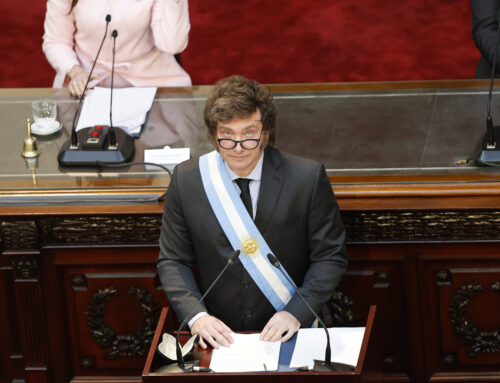In a decisive move to stabilize Argentina’s economy, President Javier Milei has secured a $20 billion agreement with the International Monetary Fund (IMF) and initiated significant monetary reforms. These actions aim to restore investor confidence and set the nation on a path toward sustainable growth.
IMF Agreement and Monetary Reforms
The IMF deal provides immediate financial support, with an initial disbursement of $12 billion to bolster Argentina’s reserves. This infusion is expected to strengthen the Central Bank’s position and support the government’s reform agenda.
Concurrently, the government has lifted most capital and currency controls, transitioning the peso to a managed float within a band of 1,000–1,400 pesos per U.S. dollar, expanding by 1% monthly. This shift aims to enhance market efficiency and reduce distortions caused by previous exchange rate policies.
Economic Impact and Future Outlook
These reforms have already yielded positive results, with inflation rates decreasing from nearly 300% to approximately 55%. The administration has also achieved a fiscal surplus, a milestone not reached in nearly two decades.
However, the path forward presents challenges. The recent general strike organized by labor unions reflects domestic resistance to austerity measures. Despite this, the government’s commitment to its reform agenda remains steadfast. The Economist
International Support and Strategic Partnerships
The United States has expressed strong support for Argentina’s economic reforms. U.S. Treasury Secretary Scott Bessent’s recent visit to Buenos Aires underscores the strengthening bilateral relations and shared commitment to economic revitalization.
Additionally, Argentina has secured $6.1 billion from other multilateral lenders and $2 billion from global banks, further reinforcing the nation’s financial stability.
Call to Action
Stay informed about Argentina’s economic transformation and its implications for global markets. Subscribe to our newsletter for the latest insights and analyses on international economic developments.







Leave A Comment